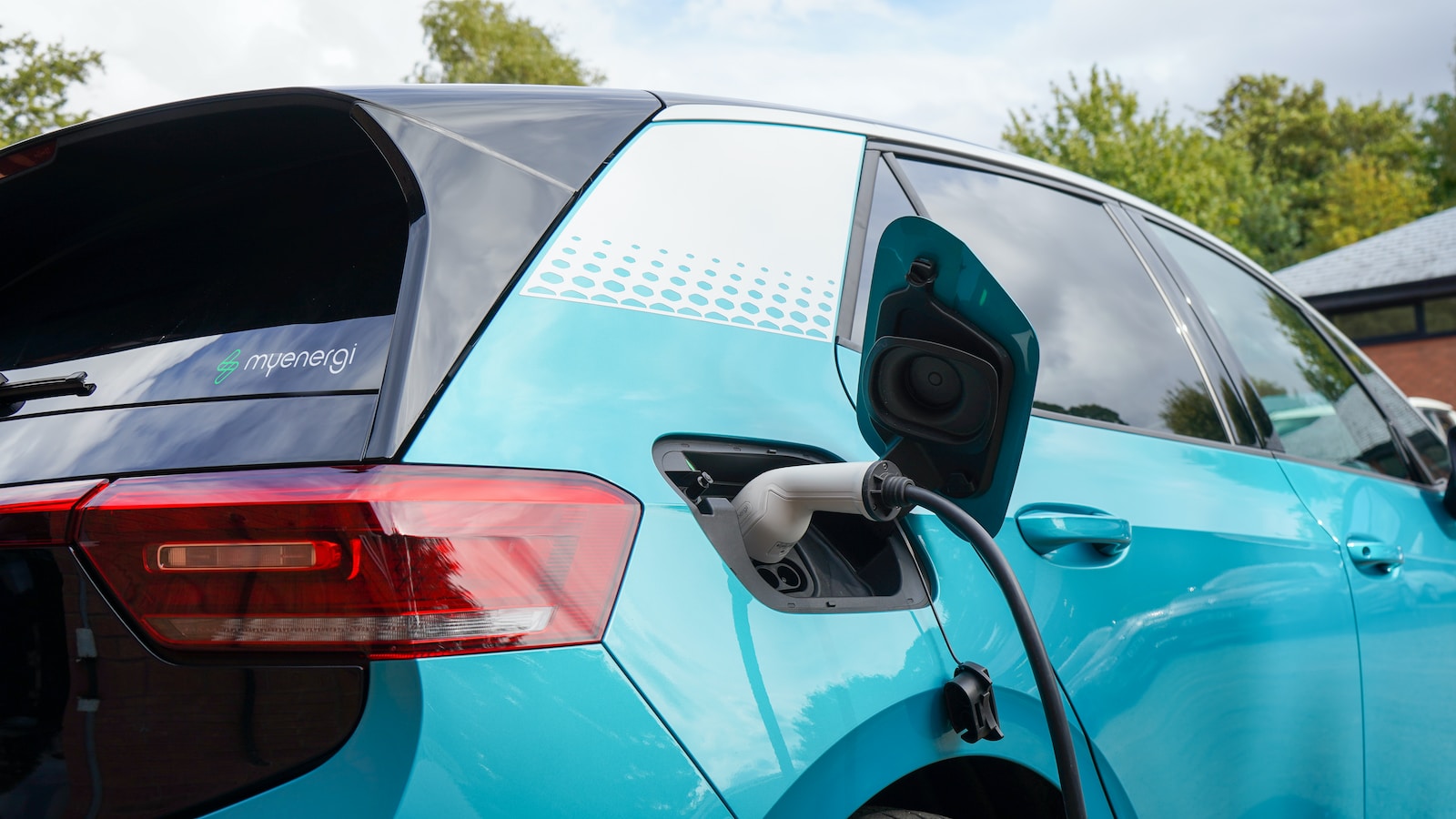Key Takeaway: Electric cars have gained significant popularity in recent years due to their environmental benefits and potential cost savings. While they still face some limitations, ongoing technological advancements and government initiatives are paving the way for a future where electric vehicles could potentially replace fuel-driven cars.
The automotive industry is undergoing a major transformation, with electric cars gaining increasing attention and market share. Electric vehicles (EVs) offer a promising solution to reduce greenhouse gas emissions and decrease our dependence on fossil fuels. However, there are skeptics who argue that electric cars will never fully replace fuel-driven vehicles. In this article, we will delve into the advantages and limitations of electric cars, explore ongoing technological advancements, and discuss the potential future of these vehicles.
Advantages of Electric Cars
Environmental Benefits
One of the most significant advantages of electric cars is their positive impact on the environment. Unlike traditional internal combustion engine vehicles, electric cars produce zero tailpipe emissions. The transportation sector is a major contributor to greenhouse gas emissions, and the adoption of electric vehicles can help mitigate climate change and improve air quality.
Reduced Reliance on Fossil Fuels
Another advantage of electric cars is their reduced reliance on fossil fuels. As the world grapples with dwindling oil reserves and geopolitical tensions, transitioning to electric vehicles can help diversify our energy sources. Electric cars can be powered by renewable energy such as solar or wind, leading to a more sustainable transportation system.
Lower Maintenance Costs
Electric cars have fewer moving parts than internal combustion engine vehicles, resulting in lower maintenance costs. With no oil changes, spark plug replacements, or transmission repairs, electric car owners can save on routine maintenance expenses. Additionally, regenerative braking systems used in EVs help extend the life of brake pads, reducing the need for frequent replacements.
Potential Cost Savings
While the upfront cost of electric cars is generally higher than that of traditional vehicles, there are potential cost savings over the long term. Electric cars have lower fuel costs since electricity is typically cheaper than gasoline. Moreover, governments often offer incentives such as tax credits and rebates to encourage the adoption of electric vehicles, further reducing the overall cost of ownership.
Limitations of Electric Cars
Limited Range
One of the main concerns surrounding electric cars is their limited range compared to fuel-driven vehicles. While the range of electric cars has improved significantly in recent years, it can still be a barrier for long-distance travel. However, for everyday commuting and short trips, the range of most electric cars is more than sufficient.
Longer Charging Times
Charging an electric car takes longer than refueling a traditional vehicle with gasoline. Depending on the charging infrastructure and the car’s battery capacity, it can take anywhere from 30 minutes to several hours to fully charge an electric vehicle. However, advancements in fast-charging technology are reducing charging times, making it more convenient for EV owners.
Lack of Charging Infrastructure
Another limitation of electric cars is the lack of widespread charging infrastructure. While major cities and urban areas have seen an increase in charging stations, rural areas and less developed regions often lack sufficient charging infrastructure. This can make long-distance travel a challenge for electric vehicle owners, especially in areas where charging stations are scarce.
Higher Upfront Costs
Electric cars generally have a higher upfront cost compared to traditional vehicles. This is primarily due to the expensive battery technology used in electric vehicles. However, as the battery technology improves and economies of scale come into play, the cost of electric cars is expected to decrease, making them more affordable for a wider range of consumers.
Strain on the Electricity Grid
With the widespread adoption of electric cars, concerns have been raised about the strain they could potentially put on the electricity grid. The increased demand for electricity could require upgrades to the grid infrastructure to accommodate the charging needs of electric vehicles. However, smart charging solutions and off-peak charging can help alleviate this strain and ensure a smoother integration of electric cars into the existing power grid.
Technological Advancements
Despite the limitations, ongoing technological advancements in the electric vehicle industry are addressing many of the concerns associated with electric cars. Battery technology, in particular, is evolving rapidly, leading to increased range, faster charging times, and longer-lasting batteries. Solid-state batteries, for example, offer the potential for even higher energy density and shorter charging times.
Moreover, research and development efforts are focused on improving the efficiency of electric motors and reducing the weight of electric vehicle components, which can further enhance the performance and range of electric cars. These advancements, combined with the decreasing costs of battery production, are making electric cars more attractive and accessible to a broader audience.
Government Initiatives and Policies
To accelerate the adoption of electric vehicles, governments around the world are implementing various initiatives and policies. Incentives such as tax credits, rebates, and grants make electric cars more affordable for consumers. Additionally, stricter emission standards and regulations are being put in place, nudging automakers to prioritize the development and production of electric vehicles.
Government investments in charging infrastructure are also crucial to support the growth of electric cars. Public charging stations and fast-charging networks are being deployed in cities and along major highways, enabling electric vehicle owners to charge their cars conveniently and alleviating range anxiety.
Comparison with Fuel-Driven Cars
When comparing electric cars to traditional fuel-driven vehicles, several factors come into play. In terms of performance, electric cars offer instant torque, providing a smooth and responsive driving experience. They are also quieter and produce less vibration compared to internal combustion engine vehicles. However, fuel-driven cars still have the advantage when it comes to long-distance travel and the availability of refueling infrastructure.
In terms of convenience, electric cars offer the advantage of home charging, eliminating the need to visit a gas station. Moreover, the lower maintenance requirements of electric cars can save owners time and money in the long run.
When considering the overall cost of ownership, electric cars have the potential to be more cost-effective. Lower fuel costs and reduced maintenance expenses can contribute to significant savings over the life of the vehicle, offsetting the higher upfront cost.
Future Prospects
While it is unlikely that electric cars will completely replace fuel-driven cars in the near future, the growth of the electric vehicle market is undeniable. As technology continues to improve and economies of scale kick in, electric cars are becoming more affordable, practical, and accessible to a wider audience.
The potential benefits of electric vehicles, such as reduced emissions, lower operating costs, and increased energy independence, make them an attractive option for consumers and governments alike. Furthermore, the ongoing global shift towards renewable energy sources and the phasing out of internal combustion engines in some countries indicate a strong future for electric cars.
However, challenges remain. The establishment of a robust charging infrastructure, the development of more advanced battery technology, and the integration of electric cars into the existing power grid are crucial steps towards achieving widespread adoption. Additionally, the impact on the oil industry and the need for a sustainable supply chain for battery materials are important considerations as electric cars gain popularity.
In conclusion, while electric cars still face limitations, they are a viable alternative to fuel-driven cars. The environmental benefits, reduced reliance on fossil fuels, lower maintenance costs, and potential cost savings associated with electric vehicles make them an attractive option for many consumers. With ongoing technological advancements, government support, and shifting consumer preferences, electric cars have the potential to revolutionize the automotive industry and transform the way we travel. So, will electric cars replace fuel-driven cars? Only time will tell, but the future certainly looks promising.
FAQ:
Q: Are electric cars really better for the environment?
A: Yes, electric cars produce zero tailpipe emissions, which helps reduce greenhouse gas emissions and improve air quality. However, it is important to consider the source of electricity used to charge electric cars. If the electricity comes from coal-fired power plants, the overall environmental impact may be less positive. Transitioning to renewable energy sources can further enhance the environmental benefits of electric cars.
Q: How long does it take to charge an electric car?
A: The charging time for an electric car depends on several factors, including the car’s battery capacity, the charging infrastructure, and the type of charger used. While a standard home charger can take several hours to fully charge an electric vehicle, fast-charging stations can provide a significant charge in as little as 30 minutes.
Q: Will electric cars become more affordable in the future?
A: Yes, as battery technology continues to improve and economies of scale come into play, the cost of electric cars is expected to decrease. Additionally, government incentives and subsidies can help make electric cars more affordable for consumers.
Q: Are electric cars suitable for long-distance travel?
A: While the range of electric cars has improved significantly in recent years, long-distance travel can still be a challenge due to limited charging infrastructure and longer charging times compared to refueling with gasoline. However, with careful planning and the availability of fast-charging stations along major highways, long-distance travel in electric cars is becoming more feasible.
Reference:
- International Energy Agency. “Global EV Outlook 2021.” https://www.iea.org/reports/global-ev-outlook-2021
- United States Department of Energy. “Electric Vehicles: Benefits.” https://www.energy.gov/eere/electricvehicles/electric-vehicles-benefits
- Union of Concerned Scientists. “Cleaner Cars from Cradle to Grave.” https://www.ucsusa.org/resources/cleaner-cars-cradle-grave



